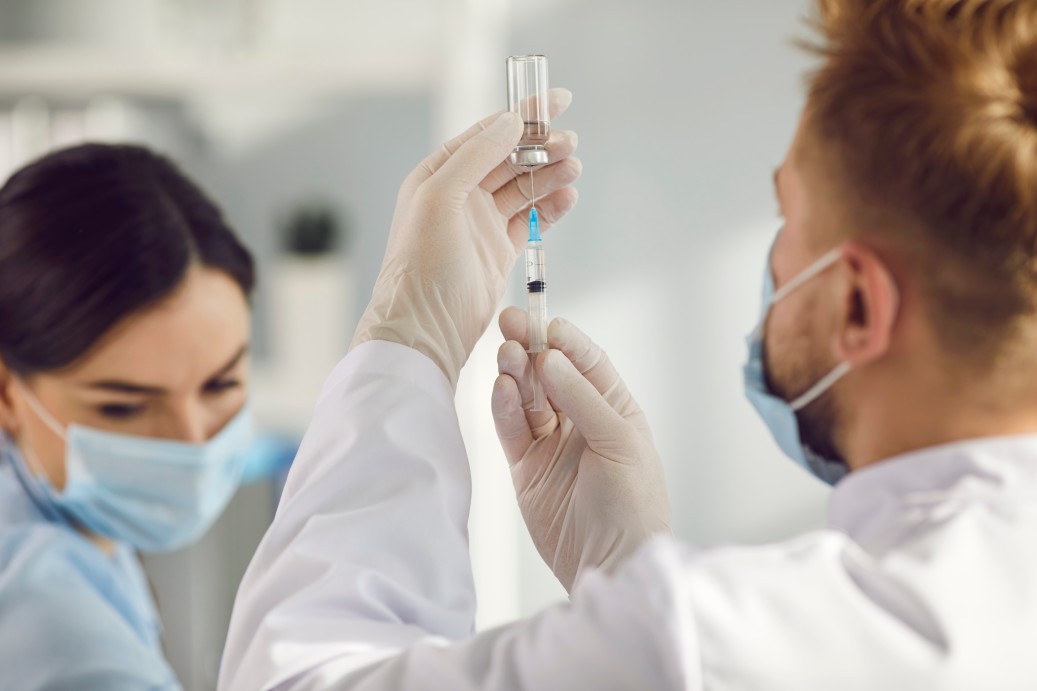The FDA late Wednesday granted emergency use authorization for a third dose of the Pfizer COVID-19 vaccine to those over the age of 65 and a wide swath of American workers at higher risk of infection.
The agency’s move comes as a CDC panel ended the first day of a two-day meeting. That panel, the Advisory Committee on Immunization Practices, is expected to vote Thursday to instruct doctors on how to administer the boosters.
“After considering the totality of the available scientific evidence and the deliberations of our advisory committee of independent, external experts, the FDA amended the EUA for the Pfizer-BioNTech COVID-19 vaccine to allow for a booster dose in certain populations such as health care workers, teachers, and daycare staff, grocery workers and those in homeless shelters or prisons, among others,” said Acting FDA Commissioner Janet Woodcock, MD.
The FDA determined that the benefits of a booster dose outweigh the risks for people now authorized to receive it, according to an agency press release.
While only the Pfizer vaccine was authorized for boosters, it was not immediately clear if people who received the first doses of either the Moderna or Johnson & Johnson vaccines would be eligible.
“That [would] leave half of the people immunized in this age group having received the vaccine and being told that they’re at risk now for waning immunity and hospitalization unable to get a booster dose,” said committee member Sarah S. Long, MD, a professor of pediatrics at Drexel University College of Medicine in Philadelphia. “So that’s a big public health panic that we would like to avoid.”
Johnson & Johnson recently reported that second doses of its vaccine boosted its efficacy to almost 94% against COVID-19. A new study that was published ahead of peer review suggests the efficacy of the single-dose J&J shot has fallen to about 78% against symptomatic infection during the Delta surge.
Moderna has applied for permission to market third doses of its vaccine in the US, but the FDA has given no timeline on when it might make a decision.
Doran Fink, MD, a deputy director of the FDA’s Division of Vaccines, told the committee the agency was working as quickly as possible on Moderna’s submission.
Regarding the question of whether it was OK to mix vaccines, rather than match them, Fink said there are currently not enough data available to inform that decision.
Those answers are coming, though. John Beigel, MD, associate director of clinical research at the National Institute of Allergy and Infectious Diseases, revealed that the federal government has a study underway to see what happens when the vaccines are mixed.
He said data from the study would be available later this fall, and would certainly help doctors and other health care providers know whether it’s effective or safe to use them interchangeably.
Correlates of Immunity
The committee left much of its schedule open on Thursday to discuss extra Pfizer doses and vote on how they should be used.
Pfizer had originally applied to the FDA for a an amendment to its FDA approval, which would have given doctors a freer hand to prescribe third doses as they saw fit, in patients as young as 16.
But, the FDA’s Vaccines and Related Biological Products Advisory Committee voted on Friday against granting the amendment. The committee was particularly concerned about the lack of data in teens 16 and 17, who have the highest risk of a rare side effect that causes heart inflammation that requires hospital care.
Instead, they agreed that third doses should be given to people at higher risk from severe breakthrough infections because of advanced age or because they work in an occupation that puts them at high risk of exposure.

